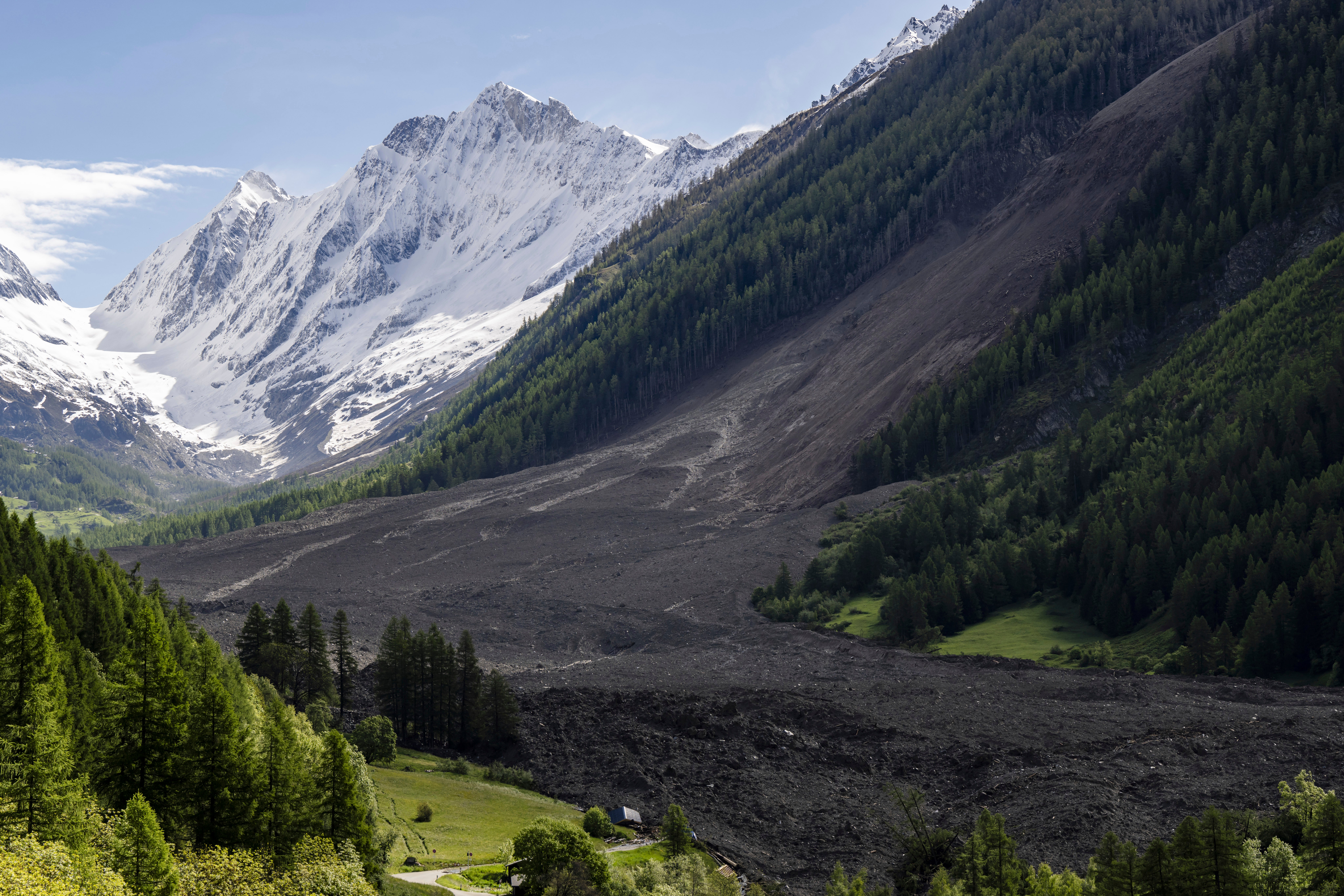A search and rescue operation is underway in the Swiss Alps for a 64-year-old man who went missing after a massive glacial collapse cascaded down a mountainside, engulfing a significant portion of the village of Blatten.
The village had been evacuated a week prior, after signs that the Birch glacier was becoming unstable.
However, the missing man was thought to have been in the vicinity on Wednesday when the mountainside collapsed.
The resulting debris has scarred the landscape, leaving a trail of rock and earth where trees once stood. Concerns are growing that the debris is now blocking a nearby river, potentially creating a new lake and heightening the risk of flooding.
Authorities have deployed the army and airlifted rescue specialists to the area to aid in the search.
Swiss officials were struggling to come to terms with the scale of the landslide, which officials said blanketed around 90 per cent of the village.

"This is the worst we could imagine. This event leaves us shocked," Albert Roesti, the Swiss environment minister, said late on Wednesday at a press conference in the Valais canton, where the village is.
The incident has revived concern about the impact of rising temperatures on Alpine permafrost, even if environmental experts have so far been cautious about attributing the glacier's collapse to the effects of climate change.
The degeneration of part of the Birch glacier in the Loetschental valley occurred after sections of the mountain behind it began breaking off in the past few days, and ultimately brought down much of the ice mass with it.
Christian Huggel, a professor of environment and climate at the University of Zurich, said that various factors were at play in Blatten where it was known that permafrost had been affected by warmer temperatures in the Alps.
He added that the debris was damming up the Lonza river next to the village, saying this could pose a major challenge with up 1 million cubic meters of water accumulating there daily.







